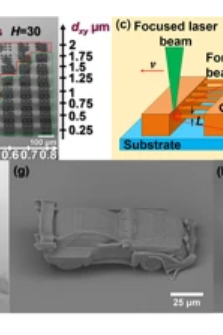Nature conservation and ecology are some of the most important topics in the world nowadays. Significant resources of scientists and developers are being invested in reducing environmen- tal pollution. 3D printing is also closely related to this topic. As you know, 3D printing uses large quantities of different types of plastics, which later decays over a very long period of time.
Despite the fact that additive manufacturing technologies are considered to be the most efficient production method due to the lowest amount of waste, we still cannot fail to respond to global climate change. This has led to the development of a new, eco friendly product.
We are happy to be able to share the result of the work today. In collaboration with researchers of Vilnius University and Kaunas University of Technology, we have developed a bio-resin. It is designed for 3D printers operating on the principle of optical 3D printing (O3DP).
The development of the resin was based on the use of soybeans. The resin is environmentally friendly and can be recycled. Unlike other O3DP resins, soy resin does not contain petroleum products. The tests confirmed that the product meets all technological, functional, and durability requirements. We hope to move to the widespread use of bio-resin in the near future.
Read more about this project:
https://3dprint.com/269282/lithuania-bio-based-resins-instead-of-petroleum-base d-materials- optical-3d-printing-o3dp/


